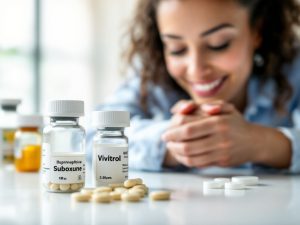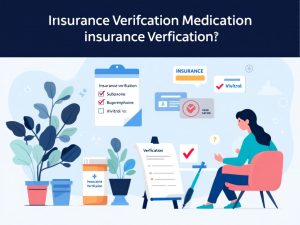When you or a loved one faces a challenging substance use issue, finding accessible and effective help is vital. Outpatient drug counseling can be a transformative option, offering specialized guidance that fits into your daily life. By providing targeted treatment while allowing you to maintain responsibilities at home and work, outpatient programs serve as a highly flexible path toward recovery. With the right support and evidence-based methods, you can move forward in a way that is both sustainable and empowering.
Below, you will learn why outpatient counseling can be so effective, how it draws on proven clinical strategies, and how Epic Health Partners can help you navigate the process. Our approach is designed to ensure you have the support necessary for lasting recovery, combining comprehensive care with individualized plans. From advanced counseling methods to empathetic staff, each aspect of our services emphasizes an environment of understanding, mutual respect, and hope for the future.
Explore outpatient drug counseling
Outpatient drug counseling generally involves structured therapeutic sessions on a weekly or biweekly basis, though the frequency can change according to your individual needs. Compared to inpatient or residential treatment, outpatient care allows you to live at home while attending scheduled appointments, group therapy sessions, or other supportive interventions. Because these programs take place in a flexible setting, they can adapt to your work, family, or school life.
What makes outpatient care unique
Unlike residential programs, which require round-the-clock participation in a controlled environment, outpatient programs rely on your ability to uphold your responsibilities in daily life. This approach offers a valuable balance. You continue to interact regularly with your usual surroundings, but with the professional support necessary to confront substance use challenges in real time. According to studies compiled by the National Center for Biotechnology Information, many individuals with substance use disorders experience positive, long-lasting effects when engaged in outpatient services (NCBI Bookshelf).
Outpatient programs can often include:
- Individual or group therapy, led by licensed professionals
- Behavior-based counseling approaches like cognitive behavioral therapy
- Family counseling and community-based support
- Medication support when needed, such as medication assisted treatment mat
- Continuing education on addiction management and relapse prevention
By combining these elements, an outpatient setting encourages you to develop new coping strategies and resilience. You face real-world challenges as they arise, working collaboratively with therapists and peers to overcome them. Some outpatient counseling services also integrate telehealth therapy to further increase convenience, an approach endorsed by mental health authorities like the Substance Abuse and Mental Health Services Administration (SAMHSA) (SAMHSA).
Balancing independence and support
Another major aspect that makes outpatient counseling appealing is the freedom it offers. You remain connected to family, friends, and work, preserving relationships and routines throughout your recovery. This continuity can positively influence long-term outcomes, as you have fewer disruptions to your daily life. That said, success in outpatient settings does require commitment and a willingness to engage with the process. You are encouraged to attend therapy sessions, take part in group discussions, and practice healthy coping methods day by day.
Outpatient services vary in intensity. If you need more structured support, you could consider an intensive outpatient program iop, which typically consists of multiple sessions per week. This level of care is designed for individuals with moderate-to-severe substance use issues but who still have the capacity to function at home or in the community.
Identify key benefits
Opting for outpatient counseling comes with a range of advantages that can amplify your healing journey. Below are some core benefits, each contributing to a supportive environment and an empowering experience tailored to your needs.
Flexibility with daily life
One of the most compelling reasons to elect outpatient drug counseling is the ability to maintain your daily obligations such as work, school, or family care. When enrolled in an outpatient program, you can typically schedule your treatment sessions around existing commitments. For many, this sense of normalcy helps sustain motivation across the recovery process.
Lower financial burden
Inpatient or residential treatment often includes higher costs due to round-the-clock supervision, housing, and other integrated services. Outpatient care, on the other hand, tends to be more budget-friendly while still ensuring you receive comprehensive therapeutic interventions. You remain at your own residence, reducing potential financial strain associated with lodging or extended institutional stays.
Community and peer support
Being part of a group that encounters similar challenges can be a major source of encouragement. Outpatient programs usually incorporate group sessions that offer peer feedback and camaraderie. Sharing obstacles, victories, and personal stories among peers can strengthen your sense of accountability and give you confidence to keep moving forward. In fact, 12-step programs like Alcoholics Anonymous and Narcotics Anonymous often serve as an additional layer of support, sustaining momentum after counseling sessions and boosting your sense of connection.
Continuity of care
Some individuals transition to outpatient counseling after completing a residential program. This continuity of care can be critically important. A structured outpatient setting, including options like substance use outpatient therapy, ensures that you continue to receive the same level of professional insight and guidance you found in more intensive treatment. This gradual shift from round-the-clock care to part-time professional support helps you adapt to everyday responsibilities without feeling overwhelmed.
Addressing co-occurring mental health needs
Co-occurring conditions are a common reality for those managing addiction. Anxiety, depression, post-traumatic stress, or other mental health concerns can emerge alongside substance misuse. Through outpatient counseling, you can also seek dual diagnosis treatment and integrated mental health support. This comprehensive care addresses overlapping issues to facilitate a more lasting recovery.
Recognize evidence-based therapies
Evidence-based therapies form the cornerstone of most outpatient counseling plans. By focusing on validated methods and scientific research, these approaches give you the best chance for successful, long-term outcomes.
Cognitive behavioral therapy
Cognitive behavioral therapy (CBT) is widely recognized for its effectiveness in addressing addiction, as well as anxiety, depression, and other mental health challenges. Through cognitive behavioral therapy cbt, you examine disruptive patterns of thought or behavior. By replacing them with healthier coping strategies, you can gradually break free of the cycles that maintain substance use.
In numerous clinical trials, CBT has been shown to empower individuals toward better self-awareness and improved emotional regulation (NCBI Bookshelf). By applying tangible techniques to everyday life, you can anticipate triggers, reduce cravings, and mitigate the risk of relapse.
Motivational interviewing
Motivational interviewing is another impactful counseling style, one that emphasizes your intrinsic desire to change. Rather than confronting or shaming, motivational interviewing therapy uses a collaborative conversation to strengthen your motivations and commitments to sobriety. For many, simply rediscovering their personal reasons for change can spark new enthusiasm for the recovery journey.
Group counseling
Sharing your experiences with others who are fighting their own substance use challenges can foster a sense of unity and accountability. Group therapy mental health sessions often include role-playing exercises, open-ended discussions, or structured activities guided by a licensed therapist. Hearing how peers cope with similar setbacks can bring a sense of normalcy and diminish the isolation or shame that frequently accompanies addiction.
Medication management
When therapy alone is not enough, medication management can play a key role. Certain medications help stabilize mood, reduce cravings, or manage withdrawal. For opioid use disorders specifically, treatments such as buprenorphine, naltrexone, or methadone are commonly prescribed in conjunction with counseling (SAMHSA). The goal is always to integrate medication with behavioral therapies, thereby supporting stable recovery.
Experience a holistic approach
Outpatient counseling does more than address the immediate challenge of curbing substance misuse. It is also your opportunity to cultivate healthy, sustainable habits while revitalizing emotional resilience. A truly holistic approach includes various services that cater to physical, mental, and social well-being.
Comprehensive mental health treatment
Even if substance use issues stand at the forefront, underlying mental health conditions like depression, anxiety, or bipolar disorder can exacerbate how you deal with addiction. By coordinating treatments such as psychiatric evaluation outpatient and medication management, you can balance both substance use and mental health challenges. This simultaneous focus is particularly vital for individuals with co-occurring disorders, where each condition can fuel the other.
Family involvement
An often overlooked segment of recovery is the role that spouses, children, and close relatives can play in your journey. While some families worry about stepping across personal boundaries, well-structured family counseling mental health sessions can provide a forum for honest communication and healing. By including loved ones in the therapeutic process, you extend the circle of accountability and emotional support. Families can learn healthy communication styles, enabling them to support you effectively.
Telehealth solutions
Difficulty scheduling appointments or traveling to the treatment center can be obstacles for many. That is why telehealth therapy services are now widely offered, letting you attend secure video sessions from home. You may also find phone consultations convenient if you cannot easily visit a clinic. Telehealth removes location barriers and ensures prompt access to help, so you do not miss critical therapy sessions due to logistical challenges.
Partial hospitalization programs
Some individuals require a more structured outpatient level of care. In these scenarios, a partial hospitalization program php offers a tighter schedule of medical and therapeutic sessions. You spend several hours a day, multiple days a week, receiving intensive therapy, counseling, and medical monitoring. Often used as a bridge between inpatient care and standard outpatient treatment, this format combines high-level oversight with the freedom of living at home.
Integrating wellness practices
A truly holistic recovery plan may include stress management techniques, mindfulness-based practices, and other creative therapies. Outpatient settings often incorporate complementary methods such as yoga or expressive arts. This balanced course of treatment recognizes that your mental, physical, and emotional health are deeply interconnected, and all deserve attention.
Choose Epic Health Partners
When you are determined to overcome substance use challenges, choosing the right outpatient drug counseling program is essential. At Epic Health Partners, we build every phase of treatment around your specific needs. Our goal is to provide the unwavering support you or a loved one needs to reshape difficult behaviors and reach a place of renewed well-being.
Tailored care at every level
From initial assessment to ongoing therapy sessions, our team personalizes your treatment. If you require more structured support, we may suggest programs like an intensive outpatient program iop or a sud partial hospitalization program. We also offer substance use outpatient therapy, trauma informed counseling, and specialized programs for co-occurring disorders treatment. Each plan is woven into a bigger picture of care that addresses every angle of your condition.
Compassionate and professional staff
Our counselors and mental health professionals approach each situation with empathy and open-mindedness. We believe that real progress thrives in a space free of stigma, where you are treated with respect and dignity. At Epic Health Partners, we take pride in providing a genuine sense of community that encourages you to step forward with confidence.
Ongoing recovery support
Lasting recovery often extends beyond standard counseling sessions. If you need help planning for sobriety, we can assist with relapse prevention planning. We also guide you through aftercare planning, outlining practical strategies to sustain progress. Resources such as nutrition counseling, peer support groups, and holistic wellness activities are all integrated into our treatment.
Where to begin
The first step toward a healthier life involves reaching out for guidance. At Epic Health Partners, we understand that each recovery journey is unique. By scheduling an evaluation, you will learn the scope of services available, including more in-depth programs like sud intensive outpatient program and medically supervised detox if needed. Through collaboration, empathy, and evidence-based approaches, we strive to bring you an experience that instills hope and sets the stage for long-term success.
Frequently asked questions
- What is the main difference between inpatient and outpatient drug counseling?
Inpatient programs require you to live at a treatment facility with 24/7 supervision, while outpatient drug counseling allows you to attend therapy sessions and return home afterward. This means you can maintain commitments like work or school. However, you should be prepared to manage real-world challenges daily and stay accountable to the treatment structure. - How long does outpatient drug counseling usually last?
The duration of outpatient counseling depends on the severity of your substance use, the presence of co-occurring mental health disorders, and your personal goals. Many programs last 30 to 90 days, but treatment can extend beyond that. Flexible structures such as outpatient therapy or intensive outpatient program iop often adapt lengths to best match your progress. - Is medication a mandatory part of outpatient counseling?
Medication is not always mandatory. Some individuals benefit significantly from medication assisted treatment mat, especially if they experience strong cravings or withdrawal symptoms. Others may focus primarily on cognitive or behavioral therapies. Each approach should be tailored to your individual situation in consultation with medical professionals. - Can I include family members in my outpatient treatment?
Yes, family involvement often plays a significant role in recovery. At Epic Health Partners, we encourage loved ones to join family counseling mental health sessions, where everyone can learn healthier ways of communicating and supporting each other. It often enhances emotional bonds and increases the likelihood of long-term recovery. - How do I know if outpatient counseling is right for me?
Outpatient counseling can be a suitable choice if you have a stable living environment, supportive relationships, and the motivation to participate regularly in your treatment plan. If you need daily medical supervision or have severe co-occurring conditions, a higher level of care such as a partial hospitalization program php or inpatient treatment may be recommended first. A professional assessment is the best next step toward deciding which approach aligns with your goals.
Outpatient drug counseling offers the flexible, evidence-driven support so many individuals need when beginning, continuing, or deepening their recovery journey. By balancing autonomy with structured care, you stay connected to your real-life environment while developing the skills and resilience needed for a healthier, substance-free future. At Epic Health Partners, we are dedicated to providing that supportive environment, tailoring programs to your specific circumstances so you have every opportunity to thrive. Whether you are seeking guidance for yourself or for someone close to you, remember that effective help is available. By taking this step, you are already moving closer to a life changed for the better.







